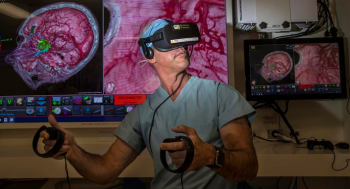People have, of course, been talking about virtual reality for years and there have been clear signs of its emergence from being the preserve of computer gamers. But the decision in October of the social media giant Facebook to change its name to META and announce the creation of 10,000 jobs in Europe to create the “metaverse” looks like a step-change. That is why the consulting firm Arthur D. Little has rushed out a special article assessing the phenomenon and its likely effect on business.
In Metaverse – the next digital revolution for business? the firm says that the term most simply refers to a VR space in which users can interact within a computer-generated environment, a description that reflects its initial application in gaming. To this extent, it is not really new. There have been various attempts to create virtual worlds for nearly two decades. But, with applications extending beyond gaming, ADL says it seems that a better definition of the metaverse might be “a future version of the Web in which immersive 3D virtual universes meet social networks, collaborative spaces, marketplaces and e-commerce.” It adds: “If we consider the metaverse as being the default on-line environment of the future, replacing the current web, then its potential importance for business needs no further explanation.” But this then leads to the question of when business leaders need to concern themselves with it. The article points out that recent history is littered with examples of new technologies that have looked set to explode only to fail to catch fire. Autonomous vehicles being a classic example. Whether we are in the realm of hype or at the start of something really momentous is impossible to say at present, but the ADL consultants do suggest that the convergence of three key factors could possibly create the inflection point in an exponential growth curve. These are:
- Software: There are now metaplatforms and standards, which allow inter-operability and enable the creation of multiple applications in a functioning value chain that is already starting to move well beyond gaming.
- Hardware: There are also signs that accelerating advances in hardware, both at the infrastructure and consumer levels, will reduce some of the barriers to widespread adoption of VR.
- Consumers: The user base for VR is exploding, and not only among younger consumers, because of the increased familiarity with virtual interaction brought about by the pandemic.
Quelle:
Foto: Healthcare is a sector that can clearly benefit from greater use of virtual reality. (Photo by Mark … [+]Staff Photographer




